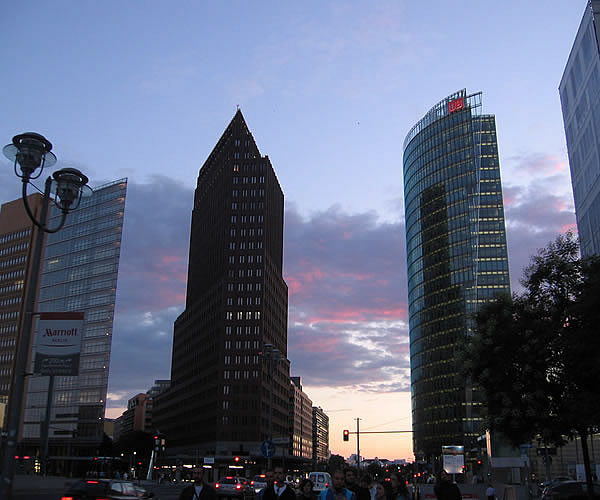
Germany's capital claims the highest unemployment rate of any city in the nation, but has been steadily declining from it's earlier rates of 20 percent. The rate for 2010 was at about 14 percent.
This is due to many complicated factors like the "wall in the mind". After re-unification, Berlin put growth on hold in order to rehabilitate or eradicate inefficient East German businesses. Many East Germans were financially supported by the state during this interim period, but unfortunately things did not develop equally and many people were better rewarded for collecting social insurance than working. This helped to create a recession that lasted from 1996 to 2004, and left a whole new generation unmotivated.
Berliners today are innovative, but many still do not hold consistent employment. Berlin and Germany's government are working to correct these issues, but it is a long-term project.
Requirements
The Bundesagentur fuer Arbeit is responsible for providing unemployment benefit. Only individuals who were employed and subject to insurance for at least 360 days in the last two years prior to unemployment are entitled to unemployment benefit. The self-employed do not qualify and those who resign must wait three months before receiving benefits. The receipt of employment benefit is subject to a number of conditions.
- Register in person as a jobseeker with the employment agency
- Complete an application form
- Provide your identity card with a registration certificate
- Provide employment records (wage tax card)
- Work permit (if applicable)
- CV or resume
- References
- Educational certificates and diplomas
- If applicable, evidence of previous receipt of benefit
EU Nationals applying within Germany
EU nationals are entitled to unemployment benefit in Germany if they have worked and paid social/national insurance contributions for at least 12 months prior to registering as unemployed. They must have been employed in Germany, for at least one day, in the three years prior to application. To prove your entitlement you have to produce proof of your social insurance contributions in whatever EU country you have been employed in.
Benefits
Benefits are paid to those aged between 15 and 64. The amount and duration of unemployment benefit are determined by the amount of your previous income and the length of your previous employment. Generally, benefits are paid monthly in advance for periods of six months at a time.
Benefits are considered applied for upon registering as unemployed. An individual who is single and has no children receives 60 percent of his standard net remuneration as unemployment benefit. If you or your partner are looking after a child under the age of 18, the rate rises to 67 percent. A full year's unemployment benefit is received if the person has worked for two calendar years or more (18 months for those aged over 55).
Along with providing financial benefits, Job Centers provide resources for job-hunters like training courses, language courses, etc. Costs for such courses are normally covered by the Arbeitsamt. These appointments are conducted in German so bring someone who is comfortable in German if you are not. Anyone (whatever their nationality) may examine vacancies at the job center.
State Subsistence Allowance
Jobseekers and individuals capable of work, but who are not entitled to unemployment benefit, or whose entitlement expires, receive a State subsistence allowance (Arbeitslosengeld II). The fixed amount of this basic allowance is generally considerably lower than unemployment benefit.
Update 6/06/2011
Keep more of your money when transferring funds overseas!

If you want to move money abroad, from Germany or to Germany for example, Fexco provides efficient and secure global bank to bank transfers and bespoke payment solutions for both business and personal clients.
Why Fexco
Fexco provides a secure international money transfer service online or by telephone with bank beating fx rates and low fees. Specialises in high-value transfers.
Main characteristics
Fexco will help you to keep your overseas money transfer costs to a minimum.
| Margin | 0.6% |
|---|---|
| Regulator | FCA |
| Fee | £10 < £5K or Free > £5k |
| Mini | £1K |
| Ccy | All (130 currencies, incl ‘exotics’) |
| Services | Repatriation of funds, Property, Regular payments, High Value payments, spot, online, telephone. |
Get an online quote today
When you are ready to make your transfer, John and his team will be available to help you with better rates and an unrivalled service to make sure your funds are delivered securely and speedily.
